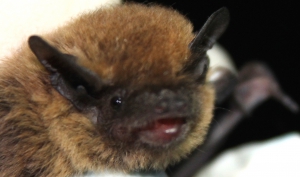
Awareness news clip by Celine Champagne – BICREF ecovolunteer 2016
As an environmental engineering student in Belgium, my study program gave me the opportunity to take an internship with the Biological Conservation Research Foundation, BICREF, in Malta. This non-profit organization gave me the amazing chance to discover what wildlife conservation is all about and erased all the doubts I had on my choice of studies in the future while inspiring me to work even harder for nature.
BICREF volunteers take part in various local research and awareness campaigns but they also get involved in assisting ongoing research projects by the Conservation Biology Research Group of the University of Malta (CBRG-UoM). Soon after my arrival during an informative introduction it became clear that I would be working for the bats conservation project. Like probably 95% of the population, my first thought was asking myself why people would be working that hard to protect bats? Those Halloween mythic animals are popularly known as blind vampires which are dangerous, stick to your hair and basically don’t matter. Instead after one month of internship working with bats I am truly convinced that they are extremely useful species and interesting creatures to study too. So it felt important to share my experience so that other people could also stop believing in those myths and start learning the true nature and value of bats.
 Bats are our best allies against pests and mosquitos! So that is already a very good reason to protect them. They are really useful for agriculture but also to the urban setting where insects abound. The ongoing research focuses on studying bats’ presence, distribution, behaviours and their requirements to survive in a fast changing environment. This information is necessary to spread accurate awareness and best management among the local Maltese farmers and public.
Bats are our best allies against pests and mosquitos! So that is already a very good reason to protect them. They are really useful for agriculture but also to the urban setting where insects abound. The ongoing research focuses on studying bats’ presence, distribution, behaviours and their requirements to survive in a fast changing environment. This information is necessary to spread accurate awareness and best management among the local Maltese farmers and public.
Such awareness may then encourage the avoidance of pesticides in order to avoid killing beneficial predators of insects, which include bats. The BICREF ngo assists in the promotion of important educational and practical measures allowing biodiversity to flourish for the benefit of current and future generations.
Any person may help bats by simply investing in bat shelter boxes which may be set-up around roofs or on trees in gardens or fields. This may be one way of promoting organic farming in Malta too since only around 1% of the island’s agriculture is reported to be organic. Besides the benefit of organic food, with increasing numbers and species of mosquitos, it is useful to have bats that eat hundreds of mosquitos per night! So their presence in our backyards might not be such a bad thing after all.
Taking part in several nocturnal field-work sessions around the Maltese islands where bats were observed and listened to with special equipment was intriguing and fascinating. This is when I learned that the biggest myth saying bats are blind is totally false. Indeed, bats actually have a really accurate vision at night which is assisted by their other very unique feature. Through this volunteer internship period it was possible to learn about how bats use echolocation to travel and to find insects. Bats send out sound waves and wait for the echo to bounce off insects and other objects, like walls to accurately “see” in pitch darkness. It was interesting to learn that echolocation (or sonar) systems of bats, like the human radar systems, are susceptible to interference known as echolocation jamming, when non-target sounds interfere with target echoes. So sound pollution may be a problem, if other ultrasound signals in the environment interfere with the signals bats need to clearly identify to survive. Using echolocation is a rare ability that not many animals have which makes bats pretty unique creatures.

When we recorded bats we identified which of the 7 species existing in the Maltese Islands it is, as each bat species emits its own typical signals. While observing the experienced scientific researcher, Clare Mifsud, MSc, handling bats, only possible through a special permit, it made me realize how careful and responsible such research work needs to be. When handling a bat to study its size, gender and condition, you have to make it feel safe otherwise the bat would totally be shocked up and curl up on itself.
The last prejudice I had about bats and that totally changed thanks to this internship is that they are not ugly animals at all. Lots of species of bats are actually really fluffy, tiny and cute too!
This hard working internship which saw me, but more so the scientists coordinating and undertaking the actual research, active in discovering the wonders of science and nature to increase our knowledge of these nocturnal flying mammals. It is only through many hours of field and laboratory research work that the unknown is unraveled by the efforts of these dedicated and determined researchers working at the Conservation Biology Research Group of the University of Malta who also welcome internships. For sure this internship has showed me how real conservation science needs great attention to the way research is undertaken. Disturbance is to be kept at a minimum and time is spent planning activities for them to be so. One needs to applaud the great work being done by these researchers and their contribution to the much needed knowledge for conservation.
BICREF and the CBRG-UoM have collaborated successfully not only in gently unravelling some of the many secrets of nature these beautiful islands still hold but to allow other interested young scientists coming from abroad to share in this exciting work. Not only have I discovered various awesome facts about bats, which have convinced me of their local importance and conservation needs, but I have also discovered so many stunning places and sights, such as the breathtaking Maltese sunsets every field-work session provided before entering the nightlife of bats.


